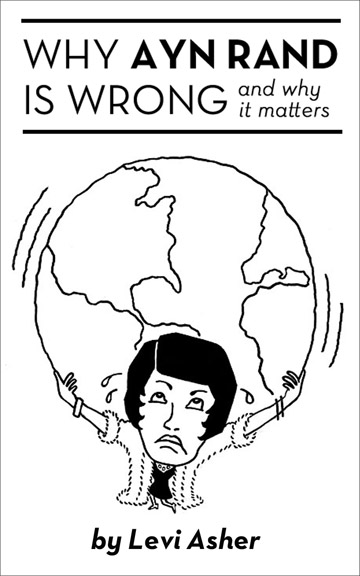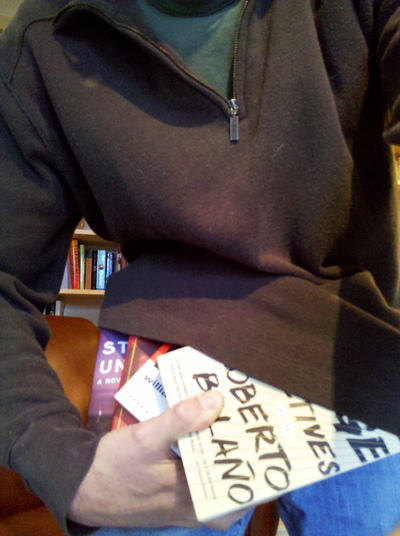 Levi Asher, the writer behind the long-running Literary Kicks site, has decided to move into the world of Kindle ebook publishing. He’s starting the series off with a philosophical essay on the Objectivism of Ayn Rand. Why Ayn Rand is Wrong (and Why It Matters) expands upon several posts Asher has made recently in his ongoing Philosophy Weekend discussions. The focus on philosophy and its requirements for logical thinking and argument is especially needed right now in a political and ideological world of harsh opinion and attack masquerading as argument. I often do this kind of attack-dog arguing myself. It’s fun and it clears the sinuses effectively. But it does not really serve much purpose. Rational philosophical debate does serve a purpose and tends to foster respect between opposing parties.
Levi Asher, the writer behind the long-running Literary Kicks site, has decided to move into the world of Kindle ebook publishing. He’s starting the series off with a philosophical essay on the Objectivism of Ayn Rand. Why Ayn Rand is Wrong (and Why It Matters) expands upon several posts Asher has made recently in his ongoing Philosophy Weekend discussions. The focus on philosophy and its requirements for logical thinking and argument is especially needed right now in a political and ideological world of harsh opinion and attack masquerading as argument. I often do this kind of attack-dog arguing myself. It’s fun and it clears the sinuses effectively. But it does not really serve much purpose. Rational philosophical debate does serve a purpose and tends to foster respect between opposing parties.
Ayn Rand, for me, is simply the author of a very readable but rather simplistic novel, The Fountainhead. I tried to read Atlas Shrugged, but gave up after two hundred pages, finding it so belabored and filled with lunkheaded ideas that I simply couldn’t put up with another speech from one of its cutout characters. However, Rand also has a body of philosophical writing that seems to have been very influential and is having some kind of a resurgence lately among mostly conservative-minded people.
I have always thought that Rand was basically reacting violently to the mass-mindedness she saw everywhere in the first half of the twentieth century. That mass-mind quality led millions to death via the trenches of World War I or the concentrations camps and genocide of Hitler and Stalin. In the face of such horror, I think I too would have found solace in elevating the individual above all else.
I have purchased my copy of the Kindle book but I have not read it yet. When I do finish the book and if I feel competent to do so I will try to write a little review. But since I know Levi Asher’s writing very well from his fascinating blog I can certainly recommend that you head over to Amazon and buy a copy of a book that is for thinking.

